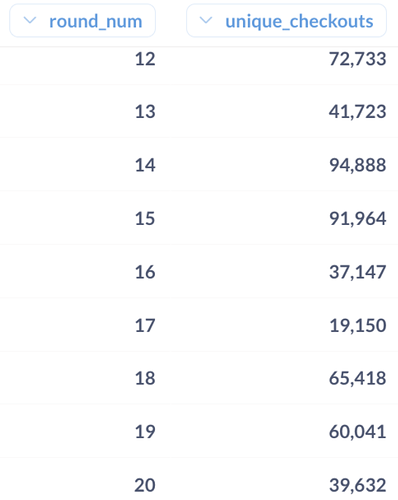Allo Fee Switch Proposal
Abstract & Background
Fire Eyes DAO has been working towards creating a roadmap for GTC Value Accrual as well as driving more clear sustainability and value to the GitcoinDAO.
As mentioned in the GTC Value Accrual Intro forum post, introducing a fee switch to the Allo Protocol is a straightforward decision that can allow us to begin this journey.
This forum post aims to ignite initial discussion on an Allo fee switch, not be a ‘ready to vote’ proposal.
Motivation
Allo protocol v2 (and its predecessors) have had $60m+ in combined volume. The introduction of a fee to Allo would create a new revenue stream which would be passed back into the DAO treasury.
Uniswaps previous discussion on the activation of their fee switch provides some guidance around the process involved in making this change, and valuable insight into the wider community response to such a change.
Although Gitcoin is a different protocol to Uniswap, the foundation of these decisions should follow the same logical course. Protocols cannot sustain being public goods indefinitely and leaning into value accrual as a protocol is important.
Specification
This initial pre-proposal discussion centres around two decisions that need to be made before we move forward:
- Firstly (1.) if the fee is added to Gitcoin’s deployment of Allo protocol or (2.) to all deployments of Allo protocol.
- Secondly if this fee was to be added, what percentage of volume the fee would take.
Firstly:
-
The fee switch could added to the Allo Protocol but only be enacted via the official Gitcoin deployment, not at the overall contract level.
- This allows others to fork the contracts and deploy their own instance without the fee if they wish to.
-
The fee switch could be implemented at the contract level, meaning that all deployments would include the switch unless it was removed from the contract itself.
- This more strongly encourages anyone using the allo contracts to contribute to the funding of public goods via GitcoinDAO.
Secondly: The fee level is an open question - we invite community feedback and discussion but envision the fee sitting at one of the following levels:
- 0.5%
- 1%
- 3%
For context, looking at these fee levels retroactively gives us an idea of how impactful a fee could be over time:
GG20:
- 0.5% of total GG20 donations = $3165
- 1% of total GG20 donations = $6330
- 3% of total GG20 donations = $18,990
All time:
- 0.5% of total Grants distributions to date = ~$300k
- 1% of total Grants distributions to date = ~$600k
- 3% of total Grants distributions to date = ~$1.8m
These numbers show value flows that could be directed towards sustainability.
It is important to note that the proceeds of this fee will be deposited back into the Gitcoin DAO treasury, to be directed into funding both the development of Gitcoin infrastructure, and the commons more broadly. As such, it makes sense for the fee to be higher than average and that most users would be accepting of this given that the fee exists purely to sustain the provision of Allo and related public goods.
FireEyes would recommend that the switch be implemented at the Allo contract level with a fee of 1%. This is because it provides a clear value proposition to GitcoinDAO’s sustainability whilst remaining reasonably unobtrusive to users donating via the Allo protocol. It is obviously still possible to remove or reduce this fee switch, but this would need to be an explicit decision to exclude by anyone deploying.
Drawbacks / Risks
There are reasonable discussion points that this type of fee switch could damage Gitcoin’s public goods reputation, here’s how we feel that we could mitigate this if deemed necessary by the community:
- Start with the checkout process having an optional donation/fee to Gitcoin DAO.
- Only enact the fee switch on the official Gitcoin frontend, and let others deploy their own frontends without fee switches.
Allo has established itself as a credible tool for capital allocation, projects with large sums of capital have two incentives to use Allo with a fee switch.
- It has pre-existing infrastructure which is easy to use, making the fee worthwhile.
- Using Allo (with a fee) also means that you are also contributing to public goods inherently by contributing to the sustainability of public goods infrastructure.
Conclusion
We hope to foster community discussion around both the introduction of this mechanism and its finer details, as well as more broadly around sustainability for the GitcoinDAO and it’s infrastructure.
We realise this is a controversial topic to introduce to a public goods focused community like Gitcoin however starting this conversation is an important step towards ensuring that we can continue sustainably building public goods infrastructure for years to come!
Please share your thoughts and feedback in this forum post ![]()
